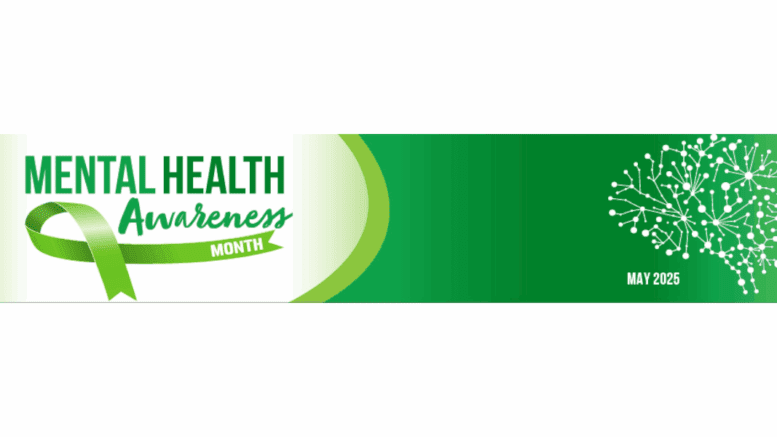By Melanie Dallas, LPC
One of the most important things Highland Rivers Behavioral Health does is provide treatment and support for individuals affected by mental illness, to help them achieve recovery. But our agency has another critical job that also helps people impacted by mental health challenges: we advocate and educate.
We believe this work is critical too – which is why every year Highland Rivers participates in countless community events, joins local collaborative coalitions, provides dozens of presentations and trainings, and is constantly in touch with our state legislators.
Raising awareness of mental health issues is also one of the primary purposes of Mental Health Awareness Month, which we observe during the month of May. This month of mental health advocacy and education – which was started by Mental Health America in 1949 – has had a tremendous impact on our understanding of mental illness, as well as on research, funding and public policy.
I recently came across an article on one of our local newspaper websites called “The 10 Biggest Ways Mental Health Month Has Made a Difference.” Although I don’t have room to share them all, there are a few I think are particularly important; I’ve added my own thoughts in parentheses after each. Seventy years of Mental Health Month advocacy and education has:
Normalized the discussion of mental health conditions. National Institutes of Health studies have shown that the percentage of adults who believe people with mental health conditions can lead normal lives increased from 69% in 1996 to 91% in 2019. This reflects a growing understanding that mental health challenges don’t define a person’s potential. (And while ‘normal’ is the word the article used, I believe ‘productive,’ ‘fulfilling’ and ‘independent’ are much more accurate words to describe the lives of individuals living in recovery with mental illness.)
Increased the number of Americans seeking support. According to Centers for Disease Control and Prevention data, the percentage of Americans receiving mental health treatment increased from 13.4% in 2002 to 20.3% in 2020 – representing millions more individuals accessing care. (While this is good, we know there are still too many people who go without needed mental health services – another reason advocacy and education are so important.)
Transformed workplace support. According to Benefits News, 86% of large employers now offer mental health resources, up from just 31% in 1999. From employee assistance programs (EAPs) to mental health days, employers increasingly recognize that supporting mental wellness is just good business. (I have long supported mental health days – and our agency recognizes that these can be as important to the overall health of our team members as sick days for physical illness.)
Expanded evidence-based interventions. The Substance Abuse and Mental Health Services Administration (SAMHSA) recognized just 35 evidence-based mental health interventions in 2000; by 2023, that number had grown to over 160. (This is really amazing – and also shows how our understanding of mental illness and clinical treatment have increased through decades of ongoing research, evaluation and innovation.)
Some other important impacts of Mental Health Awareness Month listed in the article include: increased media coverage of mental health issues, more funding for mental health research, better insurance coverage for mental health treatment, and a substantial increase in the number of schools providing mental health education. Of course, all of these developments are vital – especially for the one in five people who will experience mental illness in their lifetime – and each builds on and promotes the others.
These are all outcomes that Highland Rivers supports and for which we continue to advocate – along with increased access to mental healthcare, more funding for services in our communities, and for all our community institutions and organizations to do whatever is within their sphere of influence to ensure mental health is a priority. That could be the biggest impact of Mental Health Awareness Month, every day, all year.
Melanie Dallas is a licensed professional counselor and CEO of Highland Rivers Behavioral Health, which provides treatment and recovery services for individuals with mental illness, substance use disorders, and intellectual and developmental disabilities in a 13-county region of northwest Georgia that includes Bartow, Cherokee, Cobb, Floyd, Fannin, Gilmer, Gordon, Haralson, Murray, Paulding, Pickens, Polk and Whitfield counties.
